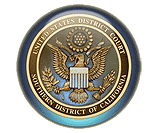Related Research Articles

Eolas is a United States technology firm formed as a spin-off from the University of California, San Francisco (UCSF), in order to commercialize UCSF's patents for work done there by Eolas' co-founders. The company was founded in 1994 by Dr. Michael Doyle and three of his staff members from the UCSF Center for Knowledge Management. While the company has been labeled as a patent troll by accused infringers of those patents, this narrative has been characterized by recent commentators as political propaganda by big-tech, since Eolas was created at the request of UCSF, and was founded by the inventors on the university's patents.
Rambus Incorporated, founded in 1990, is an American technology company that designs, develops and licenses chip interface technologies and architectures that are used in digital electronics products. The company is well known for inventing RDRAM and for its intellectual property-based litigation following the introduction of DDR-SDRAM memory.
The multinational technology corporation Apple Inc. has been a participant in various legal proceedings and claims since it began operation and, like its competitors and peers, engages in litigation in its normal course of business for a variety of reasons. In particular, Apple is known for and promotes itself as actively and aggressively enforcing its intellectual property interests. From the 1980s to the present, Apple has been plaintiff or defendant in civil actions in the United States and other countries. Some of these actions have determined significant case law for the information technology industry and many have captured the attention of the public and media. Apple's litigation generally involves intellectual property disputes, but the company has also been a party in lawsuits that include antitrust claims, consumer actions, commercial unfair trade practice suits, defamation claims, and corporate espionage, among other matters.
Uniloc Corporation is a patent assertion entity founded in Australia in 1992 that develops "try and buy" software distributed via magazines and preinstalled on new computers.

Alcatel-Lucent v. Microsoft Corp., also known as Lucent Technologies Inc. v. Gateway Inc., was a long-running patent infringement case between Alcatel-Lucent and Microsoft litigated in the United States District Court for the Southern District of California and appealed multiple times to the United States Court of Appeals for the Federal Circuit. Alcatel-Lucent was awarded $1.53 billion in a final verdict in August 2007 in the U.S. District Court for the Southern District of California in San Diego. The damages award was reversed on appeal in September 2009, and the case was returned for a separate trial on the amount of damages.
Under some patent laws, patents may be obtained for insurance-related inventions. Historically, patents could only cover the technological aspects of a new insurance invention. This is still the case in most countries. In the United States, however, recent court decisions have encouraged more inventors to file patent applications on methods of doing business. These patents may be used to get more comprehensive coverage of improvements in basic insurance processes, such as the methods of calculating premiums, reserves, underwriting, etc. This is causing controversy in the insurance industry as some see it as a positive development and others see it as a negative development.

Garlock Sealing Technologies, a subsidiary of EnPro Industries, produces Klozure Dynamic Seals and other sealing products. Garlock has a global presence, with 1,887 employees, at 14 facilities, in twelve countries.
Duane Morris LLP is a law firm headquartered in Philadelphia, Pennsylvania. Founded in 1904 as Duane, Morris, Heckscher & Roberts, the firm has offices in the United States, London, Singapore, Vietnam, Oman, Myanmar, Shanghai and Taiwan. In addition to legal services, Duane Morris has independent affiliates employing approximately 100 professionals engaged in other disciplines.

Vringo was a technology company that became involved in the worldwide patent wars. The company won a 2012 intellectual property lawsuit against Google, in which a U.S. District Court ordered Google to pay 1.36 percent of U.S. AdWords sales. Analysts estimated Vringo's judgment against Google to be worth over $1 billion. The Court of Appeals for the Federal Circuit overturned the District Court's ruling on appeal in August 2014 in a split 2-1 decision, which Intellectual Asset Magazine called "the most troubling case of 2014." Vringo appealed to the United States Supreme Court. Vringo also pursued worldwide litigation against ZTE Corporation in twelve countries, including the United Kingdom, Germany, Australia, Malaysia, India, Spain, Netherlands, Romania, China, Malaysia, Brazil and the United States. The high profile nature of the intellectual property suits filed by the firm against large corporations known for anti-patent tendencies has led some commentators to refer to the firm as a patent vulture or patent troll.
AddThis is a social bookmarking service that can be integrated into a website with the use of a web widget. Once the widget is added, visitors to the website can bookmark or share an item using a variety of services, such as Facebook, MySpace, Google Bookmarks, Pinterest, and Twitter. The site reaches 1.9 billion unique visitors monthly and is used by more than 15 million web publishers. The service operated under companies including AddThis, Inc., AddThis, LLC, and Clearspring Technologies, Inc. until the company's acquisition by Oracle Corporation on January 5, 2016.
Mirror Worlds Technologies, Inc. was a company based in New Haven, Connecticut, which created software using ideas from the book Mirror Worlds: or the Day Software Puts the Universe in a Shoebox...How It Will Happen and What It Will Mean (1992) by Yale professor David Gelernter, who helped found the company with Eric Freeman and served as chief scientist.
James Rodney Gilstrap is the Chief United States District Judge of the United States District Court for the Eastern District of Texas. He is notable for presiding over more than one quarter of all patent infringement cases filed in the nation and is often referred to by various sources as the country's single "busiest patent judge."

Keker, Van Nest & Peters LLP is a premier litigation boutique located in San Francisco, California, founded in 1978. Keker, Van Nest & Peters has tried and litigated complex, high-stakes civil and criminal cases throughout the nation. The firm's areas of practice include intellectual property, professional liability, class actions, wrongful termination defense, general contract and commercial litigation, antitrust, white collar crime, and appellate.
The smartphone wars or smartphone patents licensing and litigation refers to commercial struggles among smartphone manufacturers including Sony Mobile, Google, Apple Inc., Samsung, Microsoft, Nokia, Motorola, Huawei, LG Electronics, ZTE and HTC, by patent litigation and other means. The conflict is part of the wider "patent wars" between technology and software corporations. The patent wars occurred because a finished smartphone might involve hundreds of thousands of patents.
Apple Inc. v. Samsung Electronic Co., Ltd. was the first of a series of ongoing lawsuits between Apple Inc. and Samsung Electronics regarding the design of smartphones and tablet computers; between them, the companies made more than half of smartphones sold worldwide as of July 2012. In the spring of 2011, Apple began litigating against Samsung in patent infringement suits, while Apple and Motorola Mobility were already engaged in a patent war on several fronts. Apple's multinational litigation over technology patents became known as part of the mobile device "smartphone patent wars": extensive litigation in fierce competition in the global market for consumer mobile communications. By August 2011, Apple and Samsung were litigating 19 ongoing cases in nine countries; by October, the legal disputes expanded to ten countries. By July 2012, the two companies were still embroiled in more than 50 lawsuits around the globe, with billions of dollars in damages claimed between them. While Apple won a ruling in its favor in the U.S., Samsung won rulings in South Korea, Japan, and the UK. On June 4, 2013, Samsung won a limited ban from the U.S. International Trade Commission on sales of certain Apple products after the commission found Apple had violated a Samsung patent, but this was vetoed by U.S. Trade Representative Michael Froman.

VirnetX is a publicly traded Internet security software and technology company based in Zephyr Cove, Nevada. VirnetX has been described as being a patent troll, accused of marketing no actual products or services and instead earning its revenue through licensing patents and suing anyone that infringes them. The company has won intellectual property litigation against various technology companies. The firm is run by Kendall Larsen and his family.
Monsanto has been involved in several high-profile lawsuits, as both plaintiff and defendant. It has been defendant in a number of lawsuits over health and environmental issues related to its products. Monsanto has also made frequent use of the courts to defend its patents, particularly in the area of agricultural biotechnology.
The Facebook like button is a feature on the social networking website Facebook. It was first enabled on February 2009. The like button enables users to easily interact with status updates, comments, photos and videos, links shared by friends, and advertisements. Once clicked by a user, the designated content appears in the News Feeds of that user's friends, and the button also displays the number of other users who have liked the content, including a full or partial list of those users. The like button was extended to comments in June 2010. After extensive testing and years of questions from the public about whether it had an intention to incorporate a "Dislike" button, Facebook officially rolled out "Reactions" to users worldwide on February 24, 2016, letting users long-press on the like button for an option to use one of five pre-defined emotions, including "Love", "Haha", "Wow", "Sad", or "Angry". Reactions were also extended to comments in May 2017, and had a major graphical overhaul in April 2019.
Google has been involved in multiple lawsuits over issues such as privacy, advertising, intellectual property and various Google services such as Google Books and YouTube. The company's legal department expanded from one to nearly 100 lawyers in the first five years of business, and by 2014 had grown to around 400 lawyers. Google's Chief Legal Officer is Senior Vice President of Corporate Development David Drummond.
Bollea v. Gawker was a lawsuit filed in 2013 in the Circuit Court of the Sixth Judicial Circuit in and for Pinellas County, Florida, delivering a verdict on 18 March 2016. In the suit, Terry Gene Bollea, known professionally as Hulk Hogan, sued Gawker Media, publisher of the Gawker website, and several Gawker employees and Gawker-affiliated entities, for posting portions of a sex tape of Bollea with Heather Clem, at that time the wife of radio personality Bubba the Love Sponge. Bollea's claims included invasion of privacy, infringement of personality rights, and intentional infliction of emotional distress. Prior to trial, Bollea's lawyers said the privacy of many Americans was at stake while Gawker's lawyers said that the case could hurt freedom of the press in the United States.
References
- 1 2 Mullin, Joe (2013-02-07). "Before Facebook there was "Surfbook"—now pay up | Ars Technica, February 7, 2013". Arstechnica.com. Retrieved 2014-06-27.
- 1 2 3 "BBC News - Facebook sued over 'like' button, February 11, 2013". Bbc.co.uk. 2013-02-11. Retrieved 2014-06-27.
- ↑ Nederlandse ontwikkelaars klagen Facebook aan: NRC Handelsblad (in Dutch)
- ↑ "Facebook Beats Surfbook in Patent-Infringement Trial". NBC News. 2014-06-13. Retrieved 2014-06-27.
- ↑ "Facebook did not infringe Rembrandt patents on web-based diary systems; jury verdict stands". Wolters Kulwer. 2016-02-25. Retrieved 2018-12-26.
- ↑ "Opinion in Rembrandt Social Media, L.P. v. Facebook, Case No. 2014-1812, Court of Appeals for the Federal Circuit (February 25, 2016)" (PDF). Retrieved 2018-12-25.